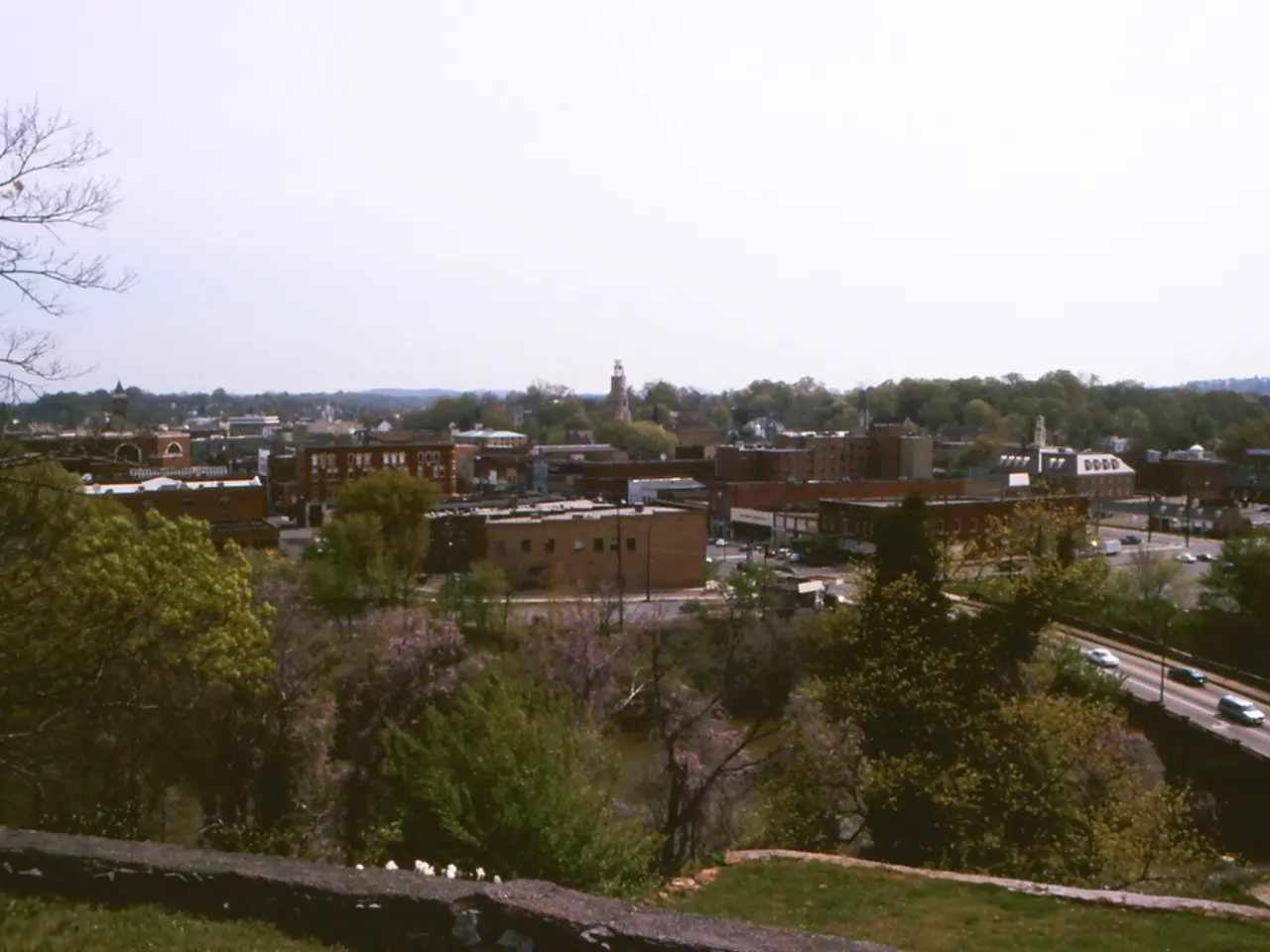Architects in Offenbach score early successes and plan for additional projects
In the heart of Germany, the city of Offenbach is undergoing a significant transformation, aiming to establish a fair and balanced cityscape as a foundation for its urban development. From March 2024 to March 2025, urban architects were dispatched to the city center to engage with business and property owners, discussing urban planning rules and design possibilities [1].
The project, spearheaded by Paul-Gerhard Weiß, emphasizes the importance of regulated design in upgrading public space. Weiß notes that an imbalance can be created when one building flaunts a large sign while its neighbour adheres to measurements [2]. In an effort to avoid such imbalances, the focus has been on special use regulations, design regulations for advertising facilities, and the city's design handbook [1].
The Offenbach city center is unique in that it thrives on those who shape it daily. However, this vibrant spirit has not been without controversy. The removal of the controversial second-level city center structure and its transformation into a hotel has sparked public disapproval, with some lamenting the loss of identity elements like the second-level plateau that once hosted retail and creative workshops [1]. Despite efforts for citizen participation, dissatisfaction remains [1].
Looking ahead, Offenbach's urban planning is focusing on sustainability, affordable housing, and enhancing public spaces. New projects like the Hellerhöfe district embody these goals by combining residential buildings with daycare centers, retail units, green climate-adapted spaces, and neighbourhood services [3]. This aligns with broader ecological and sociocultural considerations in contemporary urban design. Additionally, a new green campus for the Hochschule für Gestaltung (design school) is planned at Offenbach Harbour, symbolizing investment in cultural and educational infrastructure as part of urban development [3].
To ensure compliance with the new urban planning regulations, the city center will continue to focus on conversation offers and targeted measures instead of blanket controls. Public tours were held at the beginning of the project, highlighting particularly noticeable violations such as large stickers, digital advertising signs, and blinking light sources [1]. A jury is planned to annually award creative and rule-compliant solutions in facade design [1]. Fines or dismantling orders are provided for repeat offenders [1].
Despite some subdued response to voluntary consulting offers, numerous changes have been achieved. These include turning off blinking lights and dismantling oversized advertising areas [1]. The offer of voluntary consulting often helps to clarify misunderstandings, show room for maneuver, and keep the dialogue going - but it requires realistic expectations and patience [1]. Fixed contact persons within the administration will be established for long-term consultation [1].
In summary, Offenbach's urban renewal reflects a trend toward combining heritage sensitivity with modern ecological and social needs. The city's future development promises to be a harmonious blend of tradition and innovation, aiming to create a city center that lives and thrives for all its inhabitants.
[1] City of Offenbach Press Release, March 2024 [2] Interview with Paul-Gerhard Weiß, March 2024 [3] Offenbach City Council Meeting Minutes, April 2024
- What about the impact of urban redevelopment on various facets of city life, such as lifestyle, fashion-and-beauty, home-and-garden, travel, education-and-self-development, and shopping?
- As Offenbach focuses on sustainability and public spaces, could revitalized areas offer opportunities for innovative fashion stores, beauty salons, home decor shops, travel agencies, educational institutions, and boutique retail experience?
- Will these new regulations for design, advertising, and architecture ensure that every street in Offenbach is an attractive destination for modern explorers and lifelong learners alike?




